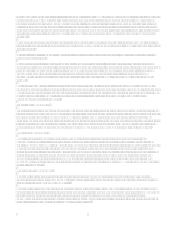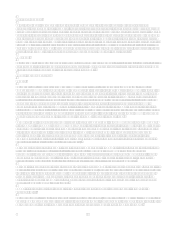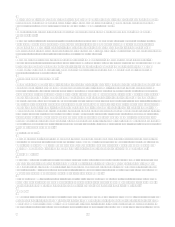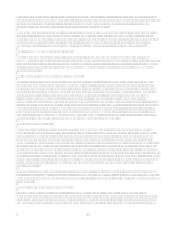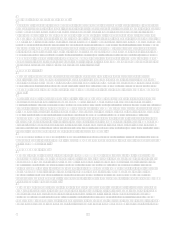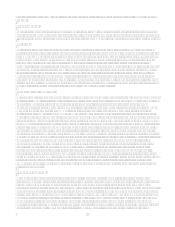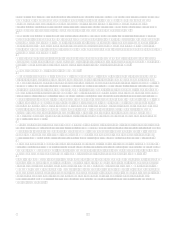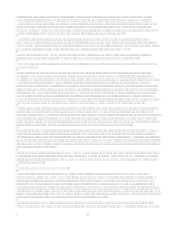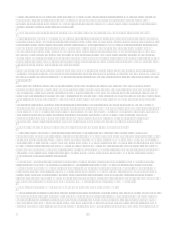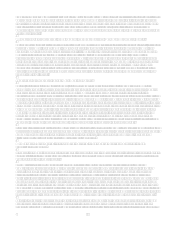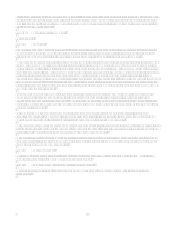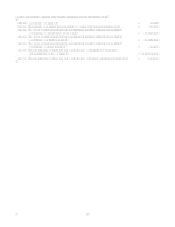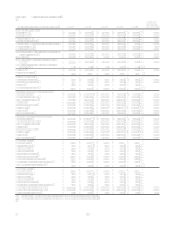Capital One 2006 Annual Report Download - page 35
Download and view the complete annual report
Please find page 35 of the 2006 Capital One annual report below. You can navigate through the pages in the report by either clicking on the pages listed below, or by using the keyword search tool below to find specific information within the annual report. 17
U.K. Bank is limited by the U.K. Companies Act1985 in its distribution of dividends to the Bank in that such dividends
may only be paid out of the U.K. Banks distributable profits.
As in the U.S., in non-U.S. jurisdictions where we operate, we face a risk that the laws and regulations that are applicable to
it (or the interpretations of existing laws by relevant regulators) may change in ways that adversely impact our business. The
OFT has concluded the initial part of its industry wide investigation into alleged unfair contract terms in lending agreements
and to how credit card companies calculate default charges, such as late, overlimit and returned check fees, in the U.K. The
OFT has set out guidance on its view that default charges should cover only certain specified costs and it has issued guidance
on what those costs may be. Specifically, the OFT has requested that the industry limit default fees to a maximum of twelve
pounds sterling. The U.K. industry was given until June 28, 2006 to implement the OFTs guidance. Capital One, as well as
other U.K. card issuers, has complied with such request. The impact on the U.K. Bank depends on the success of actions we
have taken and plans to take to mitigate the impact of this reduction. In addition, the OFT has confirmed that it will continue
with its investigation into Visas and MasterCards current method of setting interchange fees applicable to U.K. domestic
transactions. Cross-border interchange fees are also coming under scrutiny from the European Commission with the
European Commission issuing a Statement of Objections in relation to MasterCards cross border interchange fees. While a
final decision from the OFT is not expected before early 2009, the most likely outcome is that interchange fees will be
reduced and this could adversely affect the yield on U.K. credit card portfolios, including ours, and could therefore adversely
impact our earnings. Finally, in the United Kingdom, the Consumer Credit Act 2006 received Royal Assent on March 30,
2006 and has an implementation timetable extending from 2006 to 2008. The purpose of the Act is to reform the Consumer
Credit Act1974. The key areas covered by the Act are as follows: the creation of an unfair relationship test to enable
debtors to challenge unfair relationships with creditors, the creation of alternative dispute resolution options for credit
agreements, a requirement on lenders to provide additional information to debtors after the agreement is made, and a stricter
licensing regime that will give the OFT new powers to fine lenders for their behavior. At this time, we cannot predict the
extent to which the changes in the Act and Regulations will impact us.
Finally, we were recently cited by the FSA following an investigation into the sale of payment protection insurance (PPI).
PPI is a cross-sell product which protects a borrowers ability to keep up the payments on their credit card or loan in case of
an accident, sickness or unemployment for a period of up to 12 months. In relation to our sale of PPI, we were fined by the
FSA for failing to have adequate systems and controls and for failing to treat our customers fairly. Prior to the FSAs
investigation, Capital One had started a project to implement a number of significant improvements to its sales and
administrative processes concerning PPI with a focus on customer communications. Capital One proactively worked with the
FSA and has addressed all of its concerns. The fine did not have a material adverse effect on our results of operations or
financial condition, and was significantly lower than other recent fines the FSA have imposed on other providers for failings
in this area.
Statistical Information
The statistical information required by Item 1 can be found in Item 6 Selected Financial Data, Item 7 Management
Discussion and Analysis of Financial Condition and Results of Operations and in Item 8, Financial Statements and
Supplementary Data, as follows:
I. Distribution of Assets, Liabilities and Stockholders Equity;
Interest Rates and Interest Differential
pages 56-57
II. Investment Portfolio page 81-83
III. Loan Portfolio pages 53-64; 73; 84-85
IV. Summary of Loan Loss Experience pages 61-63; 83
V. Deposits pages 47; 86; 88
VI. Return on Equity and Assets page 26
VII. Other Borrowings pages 46-48; 86-88
Item 1A. Risk Factors
This Annual Report on Form 10-K contains forward-looking statements. We also may make written or oral forward-looking
statements in our periodic reports to the Securities and Exchange Commission on Forms 10-Q and 8-K, in our annual report
to shareholders, in our proxy statements, in our offering circulars and prospectuses, in press releases and other written
materials and in statements made by our officers, directors or employees to third parties. Statements that are not about
historical facts, including statements about our beliefs and expectations, are forward-looking statements. Forward-looking



